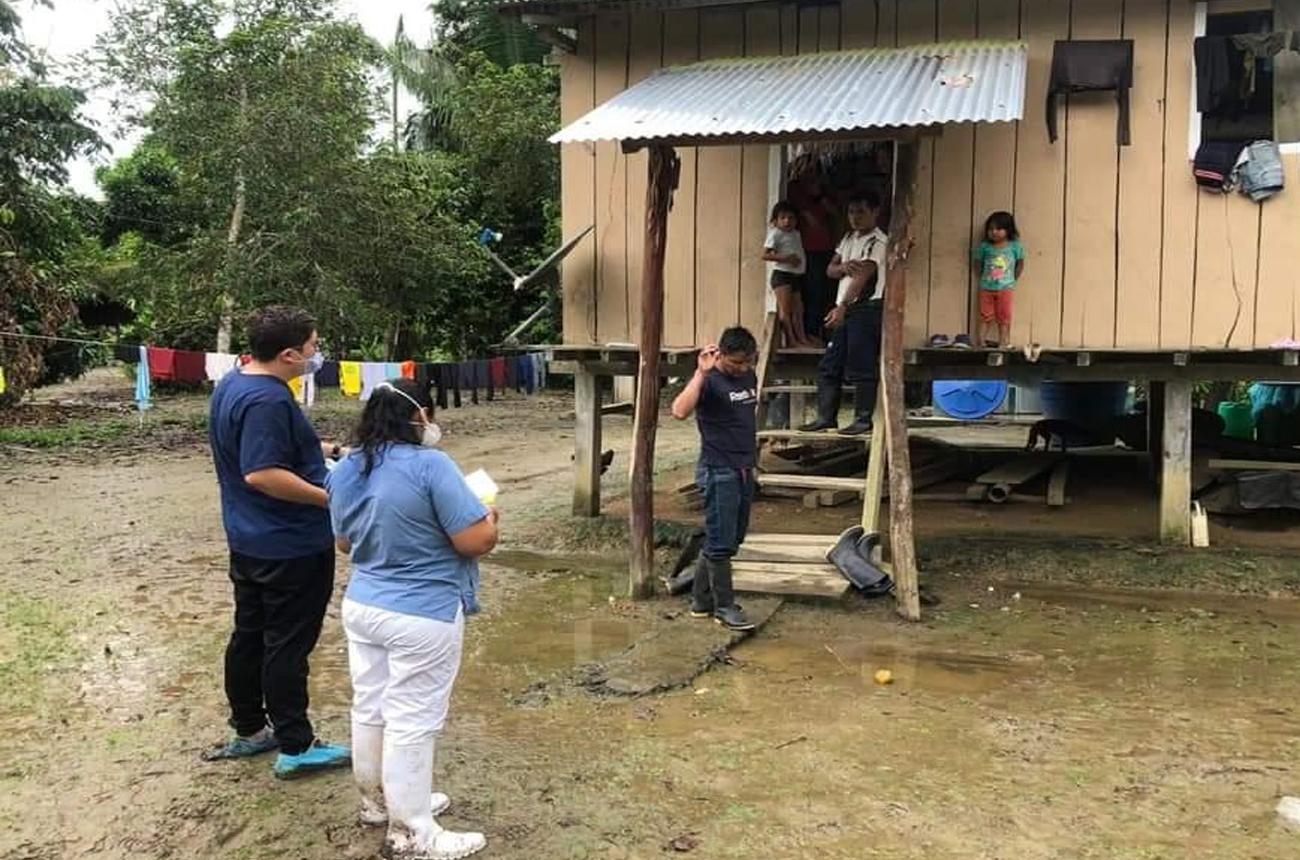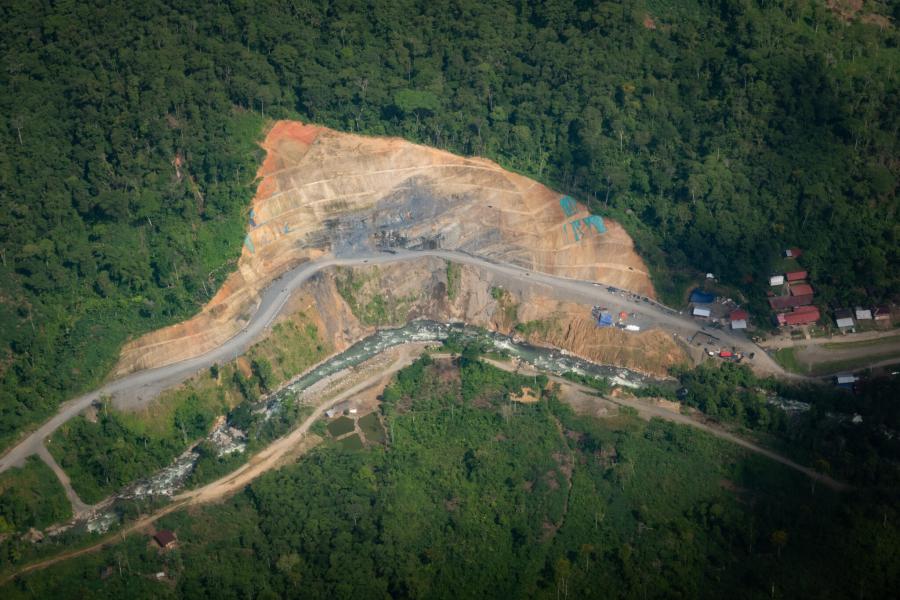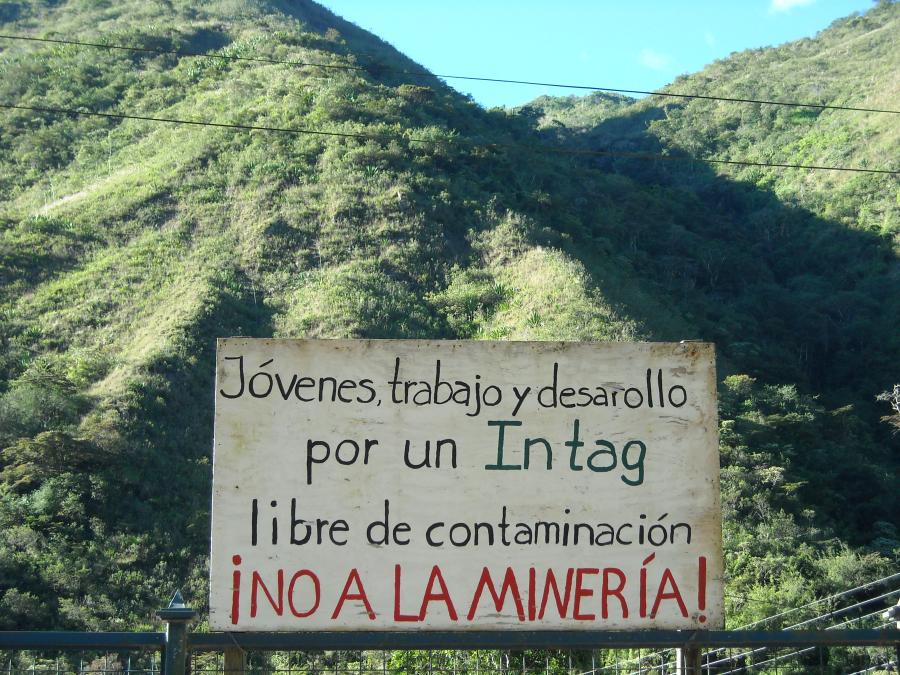
Photo: CONAIE and partners carry out medical brigade in the community of San Carlos after the oil spill on April 7, 2020. Via Facebook.
It has become clear that Indigenous Peoples across the world are suffering disproportionately during the current COVID-19 pandemic, and one example of this can be seen in Ecuador. As of May 13, the small equatorial nation has reported 30,486 confirmed cases of COVID-19 since the first case was recorded at the end of February. Ecuador has not handled the situation well, with the virus reaching even the Secoya, or Siekopai, a small Indigenous community of about 700 living in the Sucumbíos province. While COVID-19 cases in Ecuador continue to rise, this is not always demonstrated in the numbers, as many individuals and especially those living remotely are not tested at all, and therefore not recorded as COVID-19 cases or deaths. On April 17, 2020, the Alliance for Human Rights Ecuador released a statement warning of the spread of the virus on Indigenous lands, citing the death of two adults, but the government did not pay much attention; by the time the community was tested, one-third of the 42 tests conducted came back positive.
However, at the same time, Indigenous communities within Ecuador have been faced with a severe environmental disaster. On April 7, 2020, there was an oil spill from the Trans-Ecuadorian pipeline system, flooding approximately 15,800 barrels of oil into Ecuador’s waterways and affecting around 2500 Indigenous families living near the river. Now, there is no water access for drinking, cooking, or washing hands. Hólger Gallo (Panduyaku), who lives on the Coca River, told El Comercio that it is still contaminated, telling of how “many of my friends removed dead fish” from the water. Marcia Andi, president of the Kichwa Mushuk Llacta community, shared a similar sentiment: “families, grandparents, women on the banks are short on food, they have nowhere to bathe, they have nowhere to get water to drink.” Although Ecuador and the oil companies are providing some potable water to the affected communities, it is nowhere near enough.
The spill complicates the already massive threats to health experienced by Indigenous communities in Ecuador due to COVID-19. On May 4, the Confederation of Indigenous Nationalities of Ecuador, (CONAIE) lodged a public complaint regarding the Ministry of Public Health’s lack of containment plan for COVID-19 in the Siekopai community, and has submitted a request to the Interamerican Commission on Human Rights for interim measures to be taken during the pandemic. CONAIE is Ecuador’s largest Indigenous organization which represents the country’s 14 Indigenous Peoples: the Tsáchila, Chachi, Epera, Awa, Quichua, Shuar, Achuar, Shiwiar, Cofán, Siona, Secoya, Zápara, Andoa y Waorani, Afro-Ecuadorians.
On the ground, CONAIE has been providing food and mask kits to affected communities, created visual materials on coronavirus prevention in multiple languages, including Spanish, Ashuar, A’Ingae, Paikoka, and Kichwa and is organizing with partners to carry out medical brigades to communities. “We will continue to make our best effort to get to the most remote areas, where the government is simply not present and does not provide solutions. As organizations we have had to practice self-reliance to confront this most grave situation that afflicts us as Amazonians,” shared CONAIE.
Indigenous communities in Ecuador are facing not only one, but two disasters. As such, the work of organizations like CONAIE is needed more than ever. Cultural Survival reaffirms our support and collaboration with the indigenous peoples of Ecuador, and all the work CONAIE is doing. We urge the Ecuadorian government to invest in supporting Indigenous communities in the face of the COVID-19 pandemic with strategies relevant to their needs and cultural diversity.
Cultural Survival supported CONAIE with a grant from our Keepers of the Earth Fund in 2020 after State response to protests and social movements in Ecuador led to the detention of several Indigenous leaders in October 2019. Our grant enabled CONAIE to organize a series of meetings between Indigenous leaders across Ecuador on strategizing for Indigenous rights and will help mobilize legal support for the release of Indigenous leaders arrested during the protests. In April, a portion of the funds from this grant were repurposed to enable COVID-19 response.



